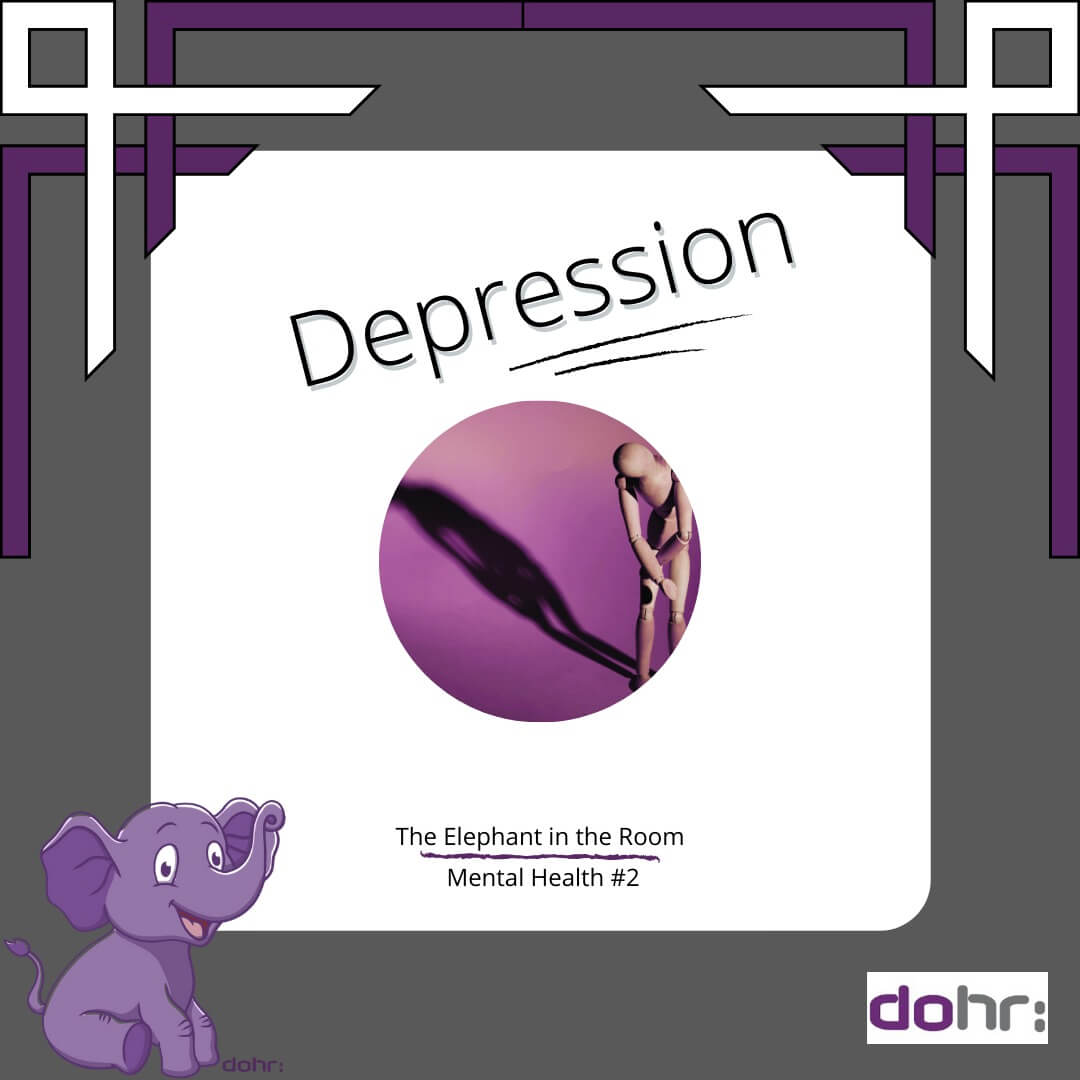Having clinical Depression is very different from being depressed.
You can feel depressed when you hear bad news, when you read a sad story, or if you have had a bad day at the office.
However, a medical diagnosis of Depression is made when symptoms last for more than two weeks and affects the employee’s behaviour. They may exhibit physical, emotional and cognitive changes and their ability to work may be impacted.
Depression can affect anyone and Depression is the most common form of mental health condition in England.
So, as an employer, if you think someone has Depression, what can you do about it?
It may be that you have someone in your business who is a Mental Health First Aider. They will have attended a recognised course and have gained an understanding of the signs and symptoms of Depression as part of their training. If you have such a person in your business, we recommend you speak to them about your concerns and put in place a plan for talking to the employee in question.
If you don’t have someone trained in your business, you need to identify the appropriate person to broach the subject, this may be the line manager or perhaps someone from HR.
The symptoms you may be seeing include decreased productivity, lack of cooperation, absenteeism, presenteeism, complaints about them from colleagues, complaints from them about everything.
One of the easiest ways to start a conversation is to pick up on something that has happened. Do it fairly soon after the ‘incident’, don’t wait days or weeks to say “do you remember when you did xyz?”
Find an appropriate time and confidential space to assess the situation. You may do this by asking questions and really listening to the responses you receive. It is really important not to judge or make assumptions. Seek to understand.
Ultimately, if they have a diagnosis of depression, ask if they have had medical support. You can ask if they are on medication, and you may feel it useful to suggest they go back to their GP or Mental Health team to get reassessed. If they are not getting medical support, you may want to help them explore the options for obtaining the right support.
As a Line Manager or colleague, you do have a duty of care towards them, but you are not there to solve their mental health issues. You need to agree a plan and discuss how they want you to support them.





